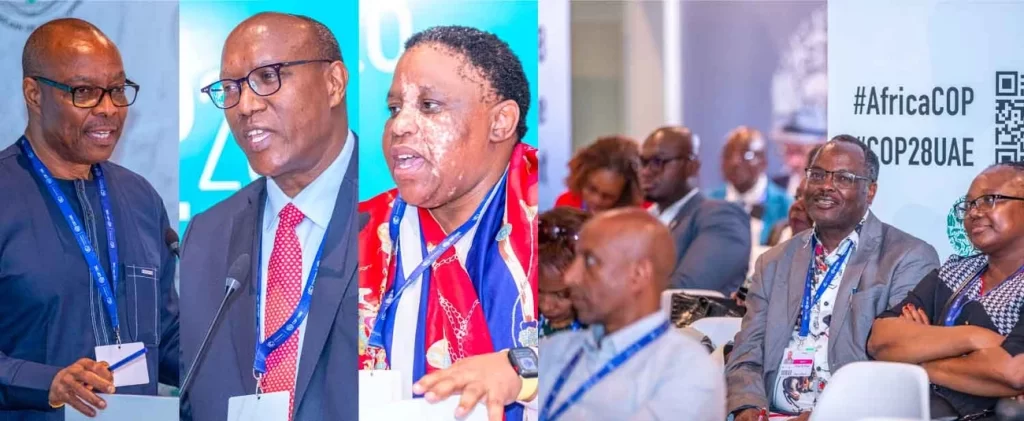
Climate Action Window: AfDB calls for proposal from 37 low-income African countries

The African Development Bank Group has launched the first call for climate adaptation proposals for the Climate Action Window (CAW) during the COP28 climate conference in Dubai, said a statement by the bank on Wednesday.
The statement said the allocation for this call which is roughly $258 million, is to be disbursed as grants.

Proposals must be submitted by 2 February 2024.The CAW was created during the 16th replenishment of the African Development Fund, the concessional arm of the Bank Group.
It seeks to accelerate adaptation measures in 37 low-income African countries by allocating 75 percent of its resources to adaptation action, 15 percent to mitigation and 10 percent technical assistance.
Kevin Kariuki, Bank Group Vice-President for Power, Energy, Climate Change and Green Growth, officially launched the call for proposals during a 4 December COP28 event on Ramping Climate Adaptation Finance in Africa. He said the CAW was seeking to raise $4 billion by 2025 towards the ultimate target of $13 billion.
“The first goal of the facility is the continent’s adaptation to the climate challenge. It should be a source of accessible and effective finance for the most vulnerable countries,” Kariuki said. He welcomed the first contributions to the CAW from the United Kingdom, the Netherlands, Germany, and Switzerland.
Germany’s State Secretary for Economic Cooperation and Development Jochen Flasbarth announced the country’s €40 million contribution to the Climate Action Window in November 2022 during COP27.
Speaking at the time, he said, “All our countries have challenges to get the right balance between adaptation and mitigation, but we want to do that. We want to look at the quality of adaptation finance, and we must look at the accessibility to climate finance, specifically for developing countries’ nationally determined contributions.”
Bank Group Chief Economist and Vice-President for Economic Governance and Knowledge Management, Kevin Urama, underscored the links between green growth and development in Africa.
“Access to climate finance is one of the continent’s great challenges. Indeed, the more vulnerable a country you are to climate, the less access you have to climate finance since the capacity to develop high quality projects is often lacking,” Urama said. “We must reexamine the world’s climate finance architecture and significantly increase low-cost concessional finance.” He called on African countries to put in place long-term strategies, fiscal reforms, and appropriate sustainable growth policies to stimulate internal resources.
The call is open to ministries, departments, agencies, and public enterprises of African governments, to departments of the African Development Bank, to civil society organizations (NGOs) and to inter-governmental organizations (United Nations organizations, regional economic communities, regional river basin organizations and regional climate centers).
The amount requested for a single project or program can range from $5-15 million. In exceptional cases and upon the recommendation of the independent evaluation committee, financing beyond or under these limits can be granted.
To be eligible, projects must be aligned with the African Development Bank’s gender strategy (2021-2025) and with its Ten-Year Strategy (2013-2022), which emphasizes inclusive growth and the transition to green growth. Projects will also align with African countries’ Nationally Determined Contributions and national adaptation plans and strategies.
All interested parties are invited to submit their candidacy in English or French, through the online dedicated platform here(link is external) by 2 February 2024.
The Climate Action Window was created during the 16th replenishment of the African Development Fund (ADF-16). Managed by and housed at the African Development Bank, it takes into consideration the climate change impacts in 37 least development countries in Africa, most of which are among those most vulnerable to climate change.
Its initial funding of $429 million has been pledged by the United Kingdom, the Netherlands, Germany, and Switzerland. The facility seeks to mobilize $4 billion by 2025 to provide rapid and coherent access to climate finance, to mobilize co-financing and give priority to the most vulnerable countries, to fragile states, and to countries affected by conflict.



